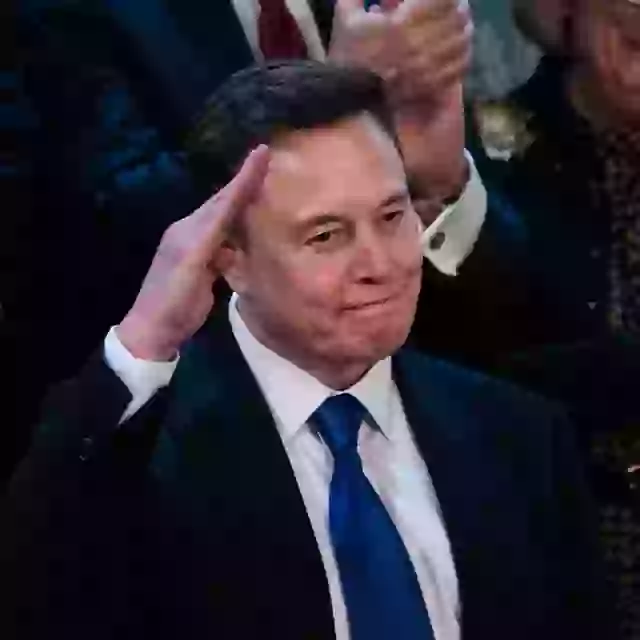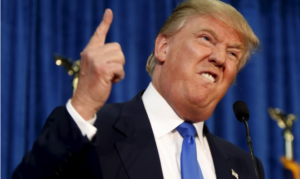Elon Musk, billionaire entrepreneur and owner of X (formerly Twitter), has once again drawn widespread criticism—this time for reposting a controversial historical claim that appeared to shift blame for genocidal atrocities from infamous dictators to government employees.
The now-deleted repost stated: “Stalin, Mao, and Hitler didn’t murder millions of people. Their public sector employees did.” The message, originally shared by an account known for far-right views, suggested that state bureaucracy—not authoritarian ideology—was ultimately responsible for the mass killings under totalitarian regimes.
Though Musk removed the repost within hours, the damage was already done. Screenshots circulated rapidly, sparking outrage from labor unions, public officials, and human rights groups across the political spectrum.
“A Slap in the Face to Public Workers”
Leading the charge in condemning Musk was Lee Saunders, President of the American Federation of State, County and Municipal Employees (AFSCME), which represents over 1.4 million public workers in the United States.
“This is not just a poor historical take—it’s a dangerous one,” said Saunders in a statement on Thursday. “Elon Musk’s implication that civil servants are somehow to blame for genocide is a slap in the face to every nurse, firefighter, sanitation worker, librarian, and teacher who gets up every day to serve their community.”
Saunders emphasized that public sector workers choose service over profit, often working long hours for modest pay to ensure that society functions. “To equate these individuals with murderers is disgraceful. It’s beyond irresponsible—it’s dehumanizing.”
Union Leaders Rally
The backlash didn’t stop with AFSCME. Everett Kelley, President of the American Federation of Government Employees (AFGE), said Musk’s statement crossed a line.
“Our members include veterans, scientists, law enforcement officers, and essential personnel who worked through the COVID-19 pandemic. To see them casually associated with genocidal regimes is not only offensive—it’s dangerous rhetoric that fosters mistrust in government institutions.”
Kelley called on political leaders to take a stronger stance against the normalization of extremist views. “There’s a real cost to this kind of discourse. Words have power—especially when spoken by people who control powerful platforms.”
The National Education Association (NEA), the largest teachers’ union in the U.S., also responded, saying the post demonstrated a “complete lack of historical understanding and human decency.”
“Educators teach the truth about the horrors of the Holocaust and Stalinist purges,” said NEA President Rebecca Pringle. “It’s horrifying to see one of the world’s most influential tech leaders promote a message that distorts that truth and shifts blame from tyrants to the public servants who risk their lives to defend democracy.”
Holocaust Scholars Speak Out
Historians and genocide scholars were quick to point out the inaccuracy of the reposted statement. Dr. Hannah Weiss, a Holocaust studies professor at Georgetown University, called it “a classic case of historical revisionism.”
“It’s intellectually lazy to attribute genocidal policy to bureaucratic inertia without addressing the ideology, command structures, and personal responsibility of the leaders who conceived and ordered the atrocities,” Weiss said.
She added that trivializing mass murder by blaming it on ‘public sector workers’ dangerously misrepresents the nature of state-sponsored violence. “The perpetrators were acting under coercive, authoritarian systems—not because they were generic civil servants.”
The Auschwitz Memorial Museum’s official account also weighed in indirectly, posting a quote from Primo Levi: “Monsters exist, but they are too few in number to be truly dangerous. More dangerous are the functionaries ready to believe and act without asking questions.” The post, widely interpreted as a response to Musk, received over 10 million views.
Elon Musk Remains Silent
As criticism mounted, Musk did not directly address the backlash. Instead, he posted a cryptic message reading, “Context is everything. Be wary of manufactured outrage.”
Critics argued that deflection is becoming a pattern with Musk, who has a history of amplifying conspiracy theories and fringe content on X. While his defenders claim he supports “free speech absolutism,” others say his selective amplification of extremist views has emboldened hate groups and undermined public trust.
According to a recent Pew Research Center poll, trust in information shared on X has declined by 38% since Musk took over the platform in 2022.
Political Ramifications
Some politicians have also weighed in. Senator Tammy Baldwin (D-WI), whose state has a large population of public sector workers, called Musk’s post “reprehensible and ahistorical.”
“Public workers are not pawns of tyranny—they are the backbone of our democracy,” she said on the Senate floor Friday morning. “We must call out these distortions for what they are: an attempt to erode faith in our shared civic institutions.”
On the Republican side, the response was more muted, though Senator Mitt Romney (R-UT) said he was “disappointed” by Musk’s “reckless reposting of deeply offensive material.”
A Pattern of Provocation?
This incident is just the latest in a series of controversial posts from Musk since acquiring X. In 2023, he was widely criticized for agreeing with antisemitic tropes in a reply to a user claiming Jewish people were pushing “hatred against whites.” That post led to major advertisers fleeing the platform and a formal inquiry by the EU into X’s content moderation policies.
Some tech industry insiders speculate that Musk’s continued flirtation with far-right and inflammatory content is a strategy to galvanize engagement—regardless of the social consequences. Others believe it reflects a deeper ideological alignment.
Whatever the motivation, the fallout is real. Unions, civil rights groups, and educators are now calling for greater accountability—not just from Musk, but from all who lead digital platforms with global reach.
“Words can inspire action, for better or worse,” said AFSCME’s Saunders. “We need leaders who lift up the truth—not those who weaponize history to demean the people who serve their communities every day.”











